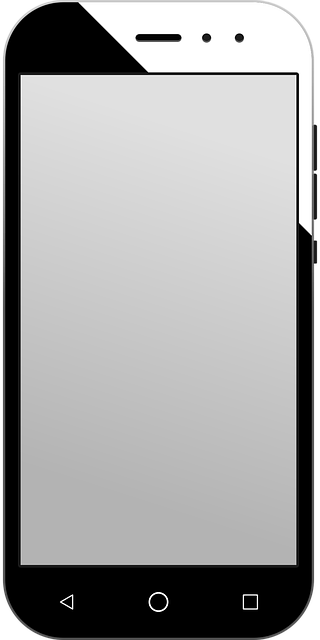South Carolina residents are protected from unwanted telemarketing calls, especially robocalls from lawyers and law firms, by specific regulations. Businesses must obtain explicit consent before using autodialers, and individuals can register on the Do Not Call registry to opt-out of automated calls. Lawyers and law firms must adhere to these rules to avoid penalties. Residents facing robocalls can report them and seek legal counsel from specialized "do not call" lawyers or robocall attorneys in South Carolina, who can help protect their rights and potentially recover damages under the Telephone Consumer Protection Act (TCPA).
Unwanted autodialed calls, or robocalls, are a growing concern for residents across the country, including South Carolina. In this state, strict regulations govern the use of autodialers, with the Do Not Call list playing a pivotal role in protecting citizens from intrusive marketing calls. This article explores South Carolina’s laws regarding autodialer use, focusing on the rights of individuals and the ethical obligations of attorneys and law firms to refrain from unauthorized robocalls. Learn how to protect yourself, understand the legal repercussions of violating these rules, and discover resources available to combat this modern nuisance.
- Understanding Autodialer Regulations in South Carolina
- The Do Not Call List: How It Applies to Attorneys and Law Firms
- Robocalls and Attorney Ethics: What You Need to Know
- Protecting Your Rights: Taking Action Against Unwanted Calls
- Legal Consequences of Unauthorized Autodialing
- Resources for South Carolina Residents: Getting Help with Robocalls
Understanding Autodialer Regulations in South Carolina
In South Carolina, the use of autodialers for telemarketing purposes is regulated to protect consumers from unwanted and unsolicited calls. The state has specific rules regarding the Do not call practices, especially when it comes to robocalls from law firms or individual attorneys. According to these regulations, businesses must obtain explicit consent before initiating automated phone calls to potential clients, including those seeking legal services.
This means that if you are a South Carolina resident and have not given permission for your number to be contacted by an autodialer, any such calls from lawyers or law firms, advertising their services or offering free consultations, could be considered a violation. For consumers concerned about these types of robocalls, it is advisable to register with the state’s Do Not Call registry and consider seeking legal counsel if they persist, especially for those who want to avoid any potential lawyer contact through such methods.
The Do Not Call List: How It Applies to Attorneys and Law Firms
In South Carolina, the Do Not Call List is a powerful tool designed to protect residents from unwanted telemarketing calls, including those from attorneys and law firms. This list allows individuals to opt-out of receiving automated or robocall advertisements by blocking legal entities from contacting them unless explicit permission is granted. The implications for lawyers and law firms are significant; they must adhere to these regulations to respect clients’ privacy and avoid potential penalties.
For South Carolina residents, registering on the Do Not Call List is a straightforward process. It offers peace of mind, especially when it comes to dealing with robocalls from attorneys or law firms promoting their services. This measure ensures that legal professionals focus on providing quality services rather than engaging in intrusive marketing practices. If you’re a resident facing persistent robocalls from lawyers or law firms, consider registering your number and exploring options for legal representation that prioritize respect for your privacy.
Robocalls and Attorney Ethics: What You Need to Know
In South Carolina, as in many states, autodialers and robocalls are subject to strict regulations to protect consumers from unwanted and intrusive phone calls. When it comes to legal professionals, such as attorneys and law firms, using automated dialing systems to make marketing or informational calls—commonly known as robocalls—is highly regulated. The “Do Not Call” laws apply here too, ensuring that these legal entities respect your right to privacy by obtaining express permission before initiating any non-emergency contact.
Attorneys and law firms operating in South Carolina must adhere to ethical guidelines when utilizing autodialers or recorded messages for marketing purposes. This includes seeking explicit consent from potential clients and providing clear opt-out options. Using such systems without prior authorization can lead to legal repercussions, as it violates the privacy rights of individuals. If you receive unsolicited robocalls from lawyers or law firms in South Carolina, you have the right to report them and take action against the offending party by filing a complaint with relevant authorities.
Protecting Your Rights: Taking Action Against Unwanted Calls
Legal Consequences of Unauthorized Autodialing
In South Carolina, unauthorized autodialing, often in the form of unwanted robocalls, carries significant legal consequences. Engaging in such practices without explicit consent from recipients is a violation of state and federal laws, including the Telephone Consumer Protection Act (TCPA). Individuals or businesses found guilty of do-not-call violations can face substantial fines, ranging from $500 to $1,500 per illegal call, depending on circumstances.
For South Carolina residents who have experienced these unwanted calls, seeking legal recourse is an option. A “do not call” lawyer in South Carolina can assist in navigating the complexities of these cases, helping individuals and businesses protect their rights. By hiring a specialist in do-not-call laws, such as those that target robocall attorneys or law firms, victims can hold perpetrators accountable and potentially recover damages caused by these unauthorized calls.
Resources for South Carolina Residents: Getting Help with Robocalls
South Carolina residents facing relentless autodialer or robocall harassment have several resources at their disposal. The first step is to understand your rights as outlined by the Telephone Consumer Protection Act (TCPA). This federal law restricts automated telemarketing calls, including those made by robots, to numbers on the National Do Not Call Registry unless the caller has prior express consent.
For immediate relief from robocalls, consider contacting a do not call lawyer or robocall attorney in South Carolina who specializes in TCPA litigation. Legal firms like these can help you navigate your rights and options, including suing for damages if necessary. Additionally, there are consumer protection agencies and non-profit organizations dedicated to helping people combat unwanted calls, providing advice, and even offering tools to block or filter robocalls. Explore reputable online resources and local legal aid groups for comprehensive assistance tailored to South Carolina residents.






